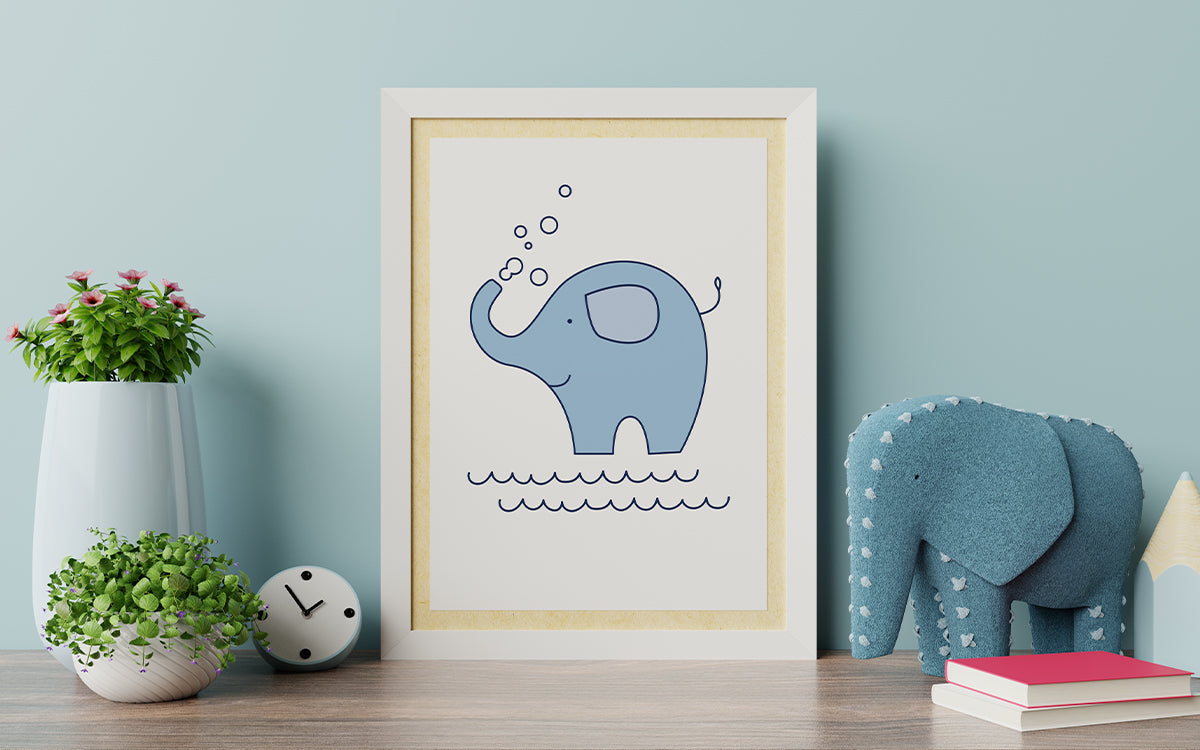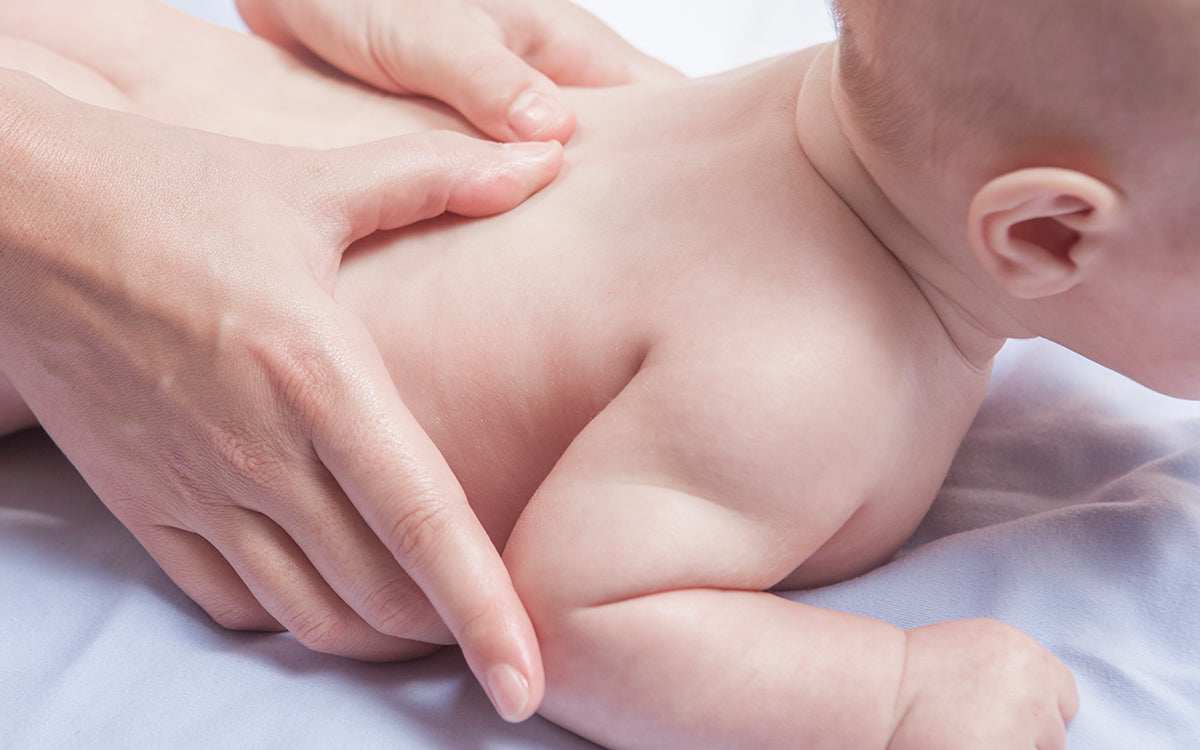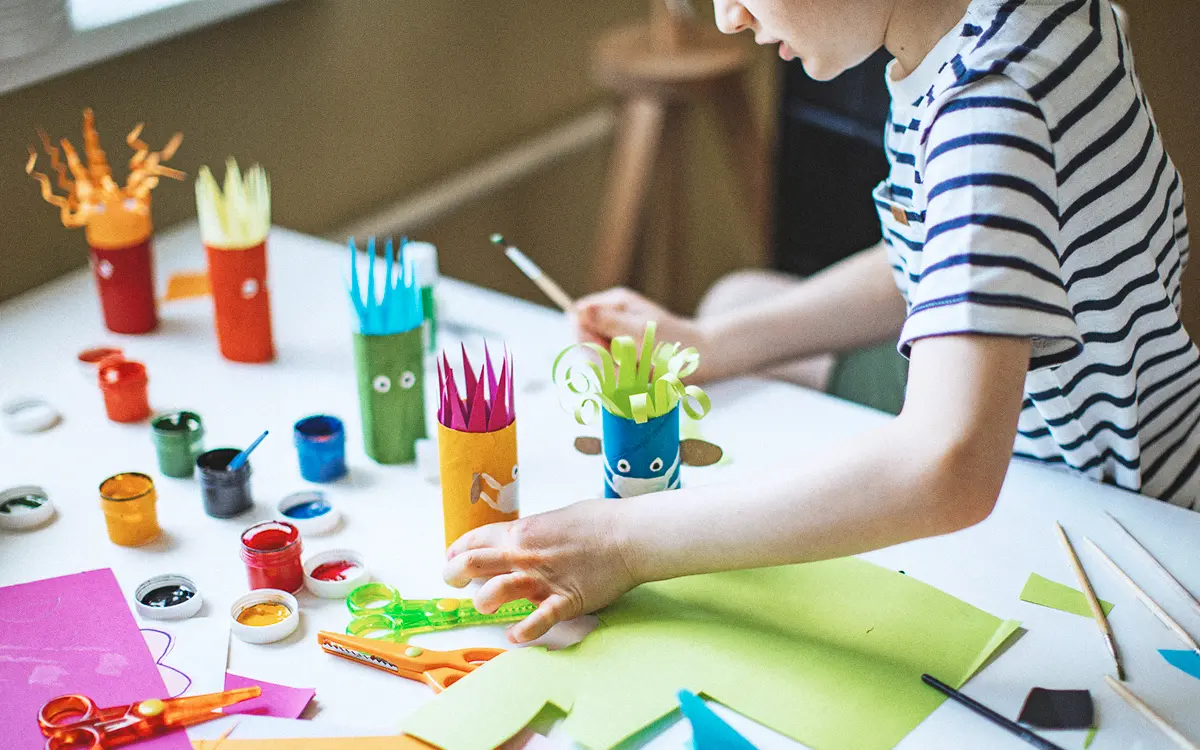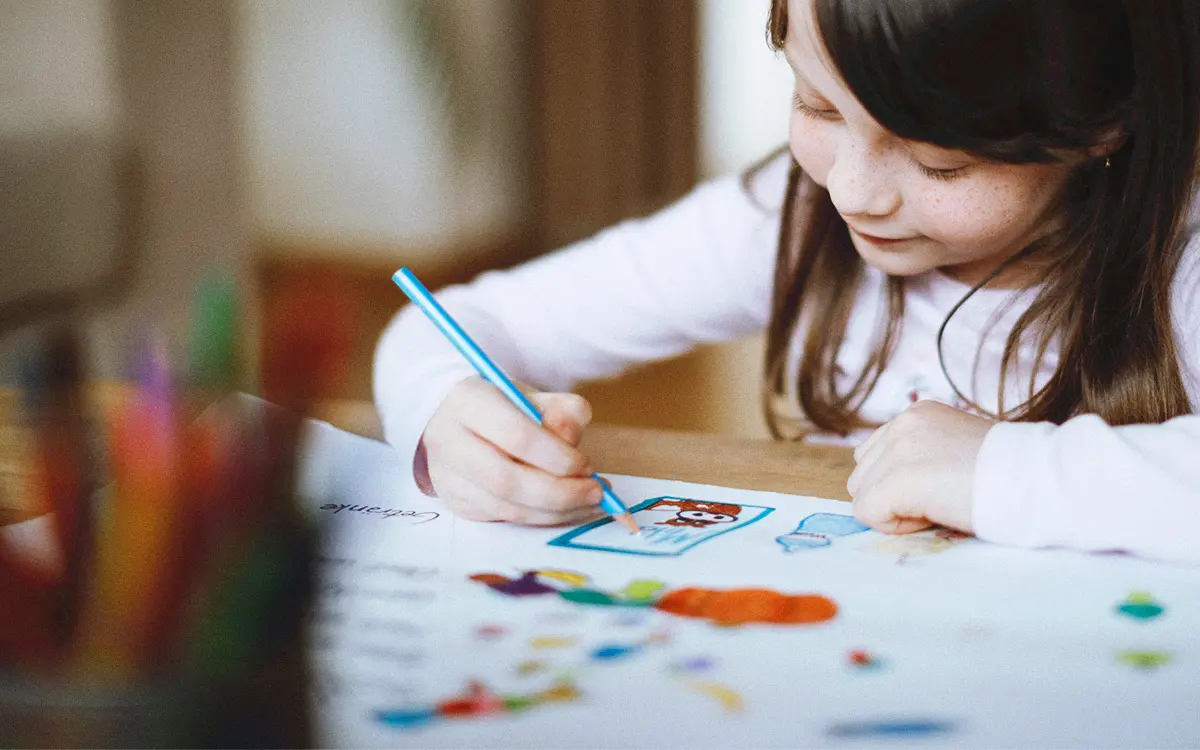The first few weeks with your baby are exciting, emotional – and sometimes a little frustrating. Why is it crying now? Why is it making that face? If only the baby could say what it wants! It takes time for parents to adjust to the little newcomer and be able to interpret the signs correctly right away. Beforehand, it's important to practice, experiment, and above all not let yourself be put off. In the beginning, it's not so easy, of course, to immediately interpret a baby's sounds, facial expressions, and gestures correctly. But little by little, parent and child become a well-coordinated team. For anyone who still finds their offspring's language a bit of a mystery and wonders whether their baby is bored or perhaps just feeling unwell due to a fart, Bübchen has put together a – tongue-in-cheek – baby dictionary.
1. HAPPY AND SATISFIED
Of course, there aren't only negative signals that need to be recognized. Babies also often make sounds when they feel comfortable or want attention:
- Contact sound: a short, single sound with which the child tests whether someone is present. Usually shortly after waking up.
- Comfort sound: A short, repeated sound indicates that your little one is awake and content. This is a good time to play or cuddle. They may whine if they want attention, but they can be quickly calmed down if you turn to them.
- When the baby squeals, laughs and kicks its arms and legs, it also signals that it is in a good mood and ready to play.
- There are also snorting sounds, which a dog makes, for example, when changing position while sleeping. These indicate that the dog is doing well and are no cause for concern.
2. SIGNS OF HUNGER
Most babies don't immediately start crying when they need to go, but initially become restless and fussy. They signal with short, single sounds in succession that something isn't right and urgently needs to be changed. This is also the case when they're hungry. The baby also turns its head from side to side, and its body tends to tense up. If you stroke its cheek close to its mouth, it will open its mouth searchingly—they will also suck on your finger if you hold it to its lips. It's high time for the next feed!
3. I am tired, go to rest...
In the early stages, infants sleep a lot. They are usually tired again after one and a half to two hours and should be put down to avoid overstimulation. Other signs that a nap is due include:
- The baby turns away from toys, books, and the like and avoids eye contact.
- It rubs its eyes or ears, its little eyes close.
- It rows with its arms or kicks its legs in an uncoordinated manner.
If your little ones can't quite fall asleep, a soothing bath ( e.g., Bübchen Baby Bath for Soft Skin ) or a gentle massage usually helps. This will quickly help their eyes close again.
4. OVERSTIMULATION, FEAR, OR A FULL DIAPER – SIGNS OF DISSATISFACTION
Babies are just getting to know their environment – unfamiliar noises or sudden movements can frighten them, and too many impressions can quickly overstimulate them. Parents should react sensitively to the first signals, as their child clearly needs peace and quiet at this point: If the baby whines and turns its head away while playing, for example, this is a sure sign that everything is too much for it. This whining can quickly turn into shrill crying. The baby then tenses its entire body and arches its back. Parents should then shield their baby from external stimuli and hold it in their arms to calm it. A full diaper can also cause discontent. Some children cry quickly when a wet bottom bothers them, others are less sensitive. Either way – the only thing that helps here is regular checking. If you discover a sore bottom while changing a diaper, this is another possible cause of your child's whining. A proven diaper rash cream ( e.g., Bübchen's Special Diaper Cream ) provides quick relief. If applied regularly to irritated skin, your baby's bottom will be back to normal in no time.
5. Stomach ache and illness
In addition to overstimulation, pain can also cause shrill crying and tense posture. Stomach aches, in particular, can be very unpleasant. Often, children will jerk their legs up, curl up, or become completely stiff. Gentle abdominal massage or being carried in the airplane hold can help. However, if the child cannot be calmed down for a long time, clenches their hands into fists, sweats, and breathes rapidly, then they are in significant pain and may be ill. Parents should consult a doctor.





